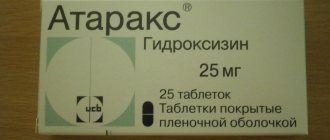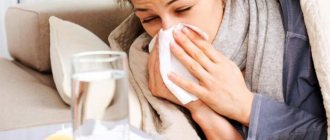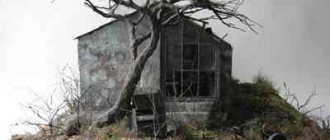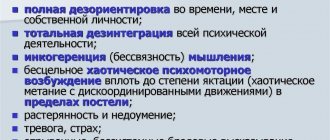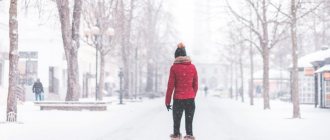According to scientific research, approximately 25-40% of people are afraid to fly on airplanes, not taking into account that this type of transport is recognized as one of the safest. More than 15% of these people suffer from aerophobia. It is very important to understand that aerophobia is not a disease, but only a symptom. In some cases, it indicates the presence of other disorders and fears, for example, acrophobia (fear of heights), claustrophobia (fear of closed spaces), etc.
From a logical point of view, negative reactions to flying are normal. And yet, aerophobia occurs in any case, even if a person is confident in his safety. This may occur due to impressionability, other fears, mental or nervous disorders, or certain diseases.
When going on a trip, some people experience anxiety and fear, which they can overcome using various sedatives and sleeping pills for airplane travel. However, they are wondering whether it is safe to take such drugs with them. The purpose of this event is not only to combat fear, but also to immerse yourself in sleep. For example, when flying for 10 hours, people often need rest, but they cannot fall asleep at all or experience significant difficulties.
Is it possible to take sleeping pills on a plane?
With sleep disturbances and excessive excitability of the nervous system, some people find it difficult to cope on an airplane without sedatives, especially on long journeys. Indeed, in some cases, taking sleeping pills is justified even taking into account their negative effect on the body.
- It is recommended to take them when changing time zones in order to adapt to biorhythms. Your doctor can recommend a specific remedy.
- If a patient suffers from chronic insomnia and phobias, he is prescribed strong medications.
- On a long flight, mild sedatives may be required for children who have difficulty falling asleep in unfamiliar surroundings and who are often fussy and disruptive to other passengers.
Is it possible to give it to a child?
It is especially difficult with small children on an airplane: they get tired, capricious and do not want to sit in one place. Therefore, parents dream that their babies will sleep peacefully throughout the entire trip. The problem is that giving sleeping pills to children is strictly prohibited, and it is pointless to hope that the baby will voluntarily agree to at least just lie down for a while.
But there is a way out: mild sedatives, natural, safe and created specifically for children. They relieve excessive excitability of the nervous system, and the flight is calmer for both children and adults. Such drugs include:
- "Dormikind", "Rescue Remedy" and "Notta" for infants;
- “Sonylux”, “Valerianahel” for children from 2 years old;
- “Persen” or “Glycine” for children 3-5 years old;
- "Dormiplant" for younger schoolchildren;
- “Motherwort”, “Novo-passit” for teenagers and children over 12 years old.
Despite the safety of these medications, you should not buy them without consulting a pediatrician. The doctor must take into account the age and individual characteristics of the child, select the optimal dosage and warn parents about possible side effects.
Restrictions on the transport of medicines
A permit is required to transport some medications. Information on this can be found at the airport.
Important! Drops and syrups with a volume of up to 100 ml are allowed to be carried in the aircraft cabin.
There are many restrictions for transporting medicines in tablets. Some of them must be declared. In addition, you must have a receipt and a prescription in English with you, which will confirm that the passenger cannot travel without this drug.
The following medications must be declared when flying:
- tranquilizers and many sedatives;
- painkillers;
- psychotropic;
- for weight loss.
Before the flight, it is advisable to consult with airline representatives regarding which medications are allowed to be taken with you and which are strictly prohibited.
You are allowed to carry into the aircraft cabin:
- medications that improve digestion;
- antispasmodics;
- antipyretics;
- analgesics;
- drops for the nose and throat;
- antiallergic drugs;
- solutions for treating wounds.
All medications must be taken in acceptable quantities so that they are not confiscated during baggage checks. If the drug you need is prohibited from being imported into the country, you will have to take it before your flight.
Medicines in hand luggage on an airplane
The main rule for carrying medications on an airplane is that passengers are allowed to take as many medications as they need for the entire duration of the trip. Please note: medicines and dietary products can be carried on board in containers with a volume of more than 100 ml and in excess of hand luggage (check the rules of the specific airline), it is advisable to pack them in a transparent zip-lock bag.
Most drops (nasal, ear) can be carried on an airplane without fear. Remember the algorithm: check the ingredients for the presence of prohibited substances, take a limited amount of medications - only for use on board, the rest - in your luggage. To transport liquids in larger containers, you may need a medical certificate or prescription confirming that you need the drops on the plane before boarding (for example, if you are undergoing treatment and drop at a certain time).
If you suffer from any chronic disease, before departure, ask your doctor about the regimen for taking a particular medication when crossing several time zones.
When transporting vital medications, if possible, distribute their volume between luggage and hand luggage - for your own safety net. Also consider the possibility and norms for transporting related devices and medical equipment.
A common practice is not to take anti-motion sickness medications on the plane, but to take a pill beforehand. This is due to the fact that anti-motion sickness medications are potent (like sleeping pills), some of them may contain substances the import of which must be declared.
The transportation of things with a passenger is often regulated by airline rules, which allow the carriage of one medical thermometer and mercury tonometer per passenger; Hypodermic needles are prohibited from being carried in hand luggage, with the exception of a document of medical justification. According to airline rules, medications cannot be carried in checked baggage; you must take them on board.
And finally, do not forget that, according to safety standards, a first aid kit is required on board every aircraft. If you feel unwell, you can contact flight attendants trained in first aid.
List of sleeping pills that are allowed to be taken on a plane
Not all sedatives can be taken on board an airplane. Only harmless mild medications that are sold without a prescription are allowed on board. This list includes:
- valerian;
- motherwort;
- "Melaxen";
- "Dramina";
- "Donormil";
- "Novopassit";
- Rescue Remedy;
- DreamZzz and other similar tools.
When choosing a sleeping pill, you need to pay attention to the speed of its action, as well as the absence of side effects, such as nausea, lethargy and severe drowsiness after waking up.
Valerian tablets and tincture
The drug is of plant origin.
It has proven itself as a sedative that improves sleep. Accumulates in the body, providing an effect even after elimination. The disadvantage of the tincture is its specific smell. Valerian acts quite mildly, but you should not try to enhance its effect by taking an increased dose of the drug. This is fraught with digestive problems, nervous system disorders, and pressure surges.
The use of valerian tincture is contraindicated for people who abuse alcohol, children, and those with individual intolerance. Valerian tablets should not be given to a child under four years of age.
On an airplane, it is recommended to follow this method of intake:
- It is enough for an adult to drink 5 tablets of 20 mg or 40 drops of tincture;
- a child over 7 years old – half a 20 mg tablet (tincture cannot be given);
- for a child from 4 to 7 years old - a quarter of a 20 mg tablet.
Valerian will not put you to sleep instantly, but will help you cope with neurosis and fear of flying, relax and fall asleep peacefully.
Aerophobia - what is this disease and how to get rid of it?
In addition to medicinal solutions to the problem, there are some other ways to combat the fear of flying. One of them is to try to sleep. If the flight takes place in a dream, a person will be able to protect himself from feelings of fear, the occurrence of a panic attack and save his nervous system. If you can’t fall asleep, you can use certain breathing or physical exercises. For example, it is recommended to tense all your muscles for a few seconds and then completely relax them. As a result, a feeling of warmth will appear throughout the body. The exercise can be repeated several times. It is considered especially useful to listen to military marches and other life-affirming melodies on board an airplane. However, for those who prefer calm music, you can choose some classical works. Personal preference plays an important role here. Music relaxes, helps you get distracted, and sometimes helps you fall asleep.
How to deal with aerophobia? During the flight, it is useful to draw and engage in intellectual creativity, for example, writing poetry or prose.
Many people feel calmer while eating. It is not for nothing that stressful situations are one of the factors of obesity. However, if you eat something light during a flight, you can eliminate a sudden attack of fear and reduce the damage to your figure caused by sweets, which can also distract from unpleasant sensations.
Conversations and new acquaintances help with aerophobia. You can try to strike up a conversation with the person sitting next to you, and if the acquaintance goes well, share your fears and problems with him. This helps you relax and feel safe.
"Motherwort Forte"
A safe composition with motherwort extract, magnesium and vitamin B6 soothes, relieves anxiety, and normalizes high blood pressure. The product has proven itself well as a preventative and is not addictive.
The drug is contraindicated in the presence of ulcers, gastritis, pregnancy, lactation and intolerance to the components. Not suitable for children under 12 years of age.
Since the drug does not act instantly, if you are afraid of flying and are confident that falling asleep will be extremely difficult, you can do the following:
- Start drinking Motherwort Forte a few days before the flight, 1-2 tablets with meals, twice a day.
- Directly on the day of the flight or already on board, take 3-4 tablets before meals.
After taking the medicine, skin rashes and swelling may appear. Allergic reactions and dizziness are possible.
Tips for aerophobes: how to cope with the fear of flying
Tip #1: Prepare for your flight in advance.
Packing your suitcase at the last minute can only add to anxiety and stress, so it's important to prepare everything in advance so you feel confident on the day of your flight. The night before departure, it is recommended to get a good night's sleep and rest. In addition, you should also arrive at the airport early to avoid unforeseen situations that may increase your anxiety.
Tip #2: Entertain yourself to reduce anxiety.
During a flight, you have many ways to distract yourself so as not to think about bad things. You can listen to music, watch your favorite movie or TV series, do a crossword puzzle
or
read specialized literature
(books “Happy Flight” by Javier del Campo Martin, “An Easy Way to Enjoy Flying” by Allen Carr or “I love to fly. How about you?” by Thomas Rubio). You can also always talk to your fellow travelers if you are flying with someone else, or just with a passenger in the next seat.
If the Internet is available on your plane, you can also test yourself, your memory, attention and other abilities with the help of exciting online games and tests CogniFit (“CogniFit”)
. Start personal training now!
Tip #3: Get complete information about your flight to feel more confident.
Before traveling, try to find out all the information about the flight, starting from how the plane works, what takeoff and landing are like, how pilots act, what flight attendants’ gestures mean, etc. Very often we are afraid because we do not have the necessary information.
If something can't take you by surprise, it won't bother you.
It is also very important to know that an airplane is the safest mode of transport in existence, with the lowest number of accidents compared to other vehicles.
Tip #4: Express your feelings and emotions.
It is useful to both cry and laugh.
When negative thoughts begin to appear in your head, think about something pleasant, remember what made you happy last week. The key in this case is replacing negative thoughts with positive ones.
Think about why you went on this journey. Maybe on vacation, or to meet with family or friends, or simply in search of new experiences and adventures...
Tip #5: If stress and anxiety persist...
If something is bothering you or you are experiencing stress during the flight, talk to the flight attendants and ask them questions
.
I assure you, you will feel better. Another trick is to tell yourself phrases that can give you confidence and calm you down ( “Everything is great, we’ll be arriving soon”, “I’m proud of what I do”, “When I land, I’ll take a relaxing bath and as a reward I’ll eat my favorite dish
.
It's better to concentrate on the positive aspects
.
“I can get there much faster by plane than by train
.
Tip No. 6. What to do if my child is afraid to fly?
If you have a child traveling with you who is afraid to fly, if possible, tell them what they will experience
(explain what a plane is, how it flies, talk about where you are going),
make sure he doesn't get bored
, give him a toy or a book, but above all,
help him feel confident
.
Tip #7: Say no to excess.
If you think that eating a hearty meal or drinking heavily before a flight will help you cope better with your fears, you are very mistaken.
The opposite may happen, it may even harm you, so
the best thing to do is to have a light snack (even better the day before), not drink a lot of alcohol and be very careful with the dosages of tranquilizers.
Tip #8: Seating is important.
Not all airplane seats are created equal. If you're afraid of flying, try to choose an aisle seat
to be away from the porthole.
You should know that the most stable places on an airplane are between its wings
.
Tip #9: Dress comfortably.
When we go on a trip, we often care more about beauty than convenience. It is very important to choose comfortable clothes for the plane that allow you to move freely.
Tip #10: What to do in case of turbulence?
Most people, even those who do not suffer from aerophobia, experience anxiety and uncertainty when an airplane enters turbulence. In such situations, it is recommended to remain calm, breathe deeply and remember that pilots are high-class professionals
trained to deal with such situations. In addition, it is important to know that the loads acting on an airplane during turbulence are much lower than those that a moving car or train might experience.
Translated from Spanish by Anna Inozemtseva
"Melaxen"
The main ingredient is synthetic melatonin.
Treatment with Melaxen has no side effects and is not addictive. After taking it, the lethargy characteristic of sedatives does not appear. USEFUL INFORMATION: Medicine for insomnia for older people The drug has a double effect:
- helps you fall asleep quickly and easily;
- normalizes circadian rhythms, helping to quickly adapt to time zone changes.
How to use:
- To adapt to time zone changes - the day before the flight and the next 2-5 days, 1 tablet 30 minutes before bedtime.
- As a sleeping pill – 1 tablet half an hour before bedtime, after the plane takes off.
The main disadvantage of the product is that it cannot be given to children. May cause minor swelling and cause an allergic reaction. It is not recommended for use by people with impaired liver and kidney function.
Analogues of "Melaxen" are "Circadin" and "Melaren".
Medicine "Melaxen"
The main active element of the drug "Melaxen" is melatonin - an adaptogenic substance, a chemical analogue of the amine melatonin, obtained from amino acids of plant materials. The main properties of the drug are to normalize circadian rhythms, regulate sleep-wake cycles, restore body temperature and motor activity. Melaxen accelerates falling asleep, reduces the number of sudden awakenings, improves the quality of sleep and the state after awakening. This medicine reduces the severity of stress reactions and helps the body adapt to time zone changes. Shows pronounced antioxidant and immunostimulating activity.
How to deal with the fear of flying on an airplane?
"Dramina"
The product has a sedative and antihistamine effect, eliminates dizziness, and prevents nausea and vomiting during motion sickness. Indicated for air sickness. The hypnotic effect of the drug is its side effect, which will undoubtedly be useful during a long flight.
How to use:
- Adults and children over 12 years old – 1-2 tablets up to 3 times a day (as needed).
- Children 7–12 years old – ½ or 1 tablet.
- Children 3–6 years old – ¼ or ½ tablet.
The disadvantage of the drug is the possible occurrence of drowsiness and dry mouth. It is contraindicated for heart disease and pregnancy. The medicine can cause dermatoses.
Drug groups
Anti-kinetosis drugs relieve the passenger from the appearance of unpleasant symptoms and poor health. Their differences lie in some features and spectrum of action. For the exact selection of medication, consult your doctor. He will determine the cause of your air sickness and prescribe the appropriate remedy. All tablets for motion sickness are divided into groups, depending on the method of exposure.
Antihistamines
The active ingredient of such drugs is dimenhydritate. It has an antiemetic and calming effect, reduces tension in the brain, and reduces the level of nausea. The most famous representatives of this category are Bonin, Dramail, Daedalon. They are prescribed to people who often have to fly. You need to take your medications several hours before your flight.
Homeopathic
Homeopathy is widespread today and is also used to localize the symptoms of motion sickness.
Tested drugs include:
- Vorax is the most popular product in its group.
- Air-sea - pills that are taken before the flight or during it if discomfort occurs.
- Vertichogel - relieves symptoms of air sickness. It is recommended to take the medicine half an hour before the flight.
- Veratrumalbum - normalizes blood pressure and relieves nausea.
Please keep in mind that homeopathic remedies are not proven effective. There is no guarantee that they will relieve you of motion sickness.
Antiemetics
If the general symptoms of kinetosis do not appear, and the person only feels sick, you can take Torekan, Cerucal or Alo-Metoclop. Metoclopramide in their composition blocks receptors in the stomach and intestines. This breaks the physiological chain of actions in the body that causes vomiting and dizziness.
Psychotropic
This group of drugs includes antipsychotics, analgesics and sleep aids. Psychotropic drugs are aimed at calming the central nervous system and stabilizing the vestibular system. Their appointment must be agreed with the doctor. Some of the most popular tablets of this group are Caffeine and Sidnocarb. They suppress the symptoms of motion sickness, but can cause side effects. Among them are arrhythmia and tachycardia, insomnia, and anxiety.
Anticholinergic
Chonolytics affect the parasympathetic nervous system. It contains alkaloids that inhibit the functioning of the vestibular apparatus - Hyoscyamine and Scopilamine. Such medications always have side effects that can cause problems when in the air. These include an allergic reaction, rapid heartbeat, sedation, apathy and hallucinations. The mildest and most prescribed drug is Aeron.
For children
There are also medicines for motion sickness that are suitable for both adults and children.
The most popular of them:
- Dramamine. Can be given to children from one year old. They act quickly - half an hour after administration. The dosage is adjusted according to age. The tablets act on the vestibular apparatus. The required effect is observed in 95% of cases of their use.
- Cocculin is a homeopathic remedy that does not need to be taken with water. Suitable for use from the age of three. For the pill to work, you need to take it a day before your flight. Does not cause drowsiness.
- Kinedril is a combination drug that allows you to minimize the symptoms of motion sickness. It is a potent drug and can be used from the age of three. May cause side effects such as a feeling of dry mouth, general weakness, tachycardia, heaviness in the stomach, and low blood pressure.
- Bonin is an American medicine that acts as an antiemetic and antihistamine at the same time. Their advantage is speed of action and long-lasting effect. Side effects include dry mouth and fatigue. Children under 12 years of age are prohibited from using the medicine.
All these drugs can be bought at the pharmacy without any problems. Before purchasing medication, consult a specialist.
Pregnant
Flying is difficult for pregnant women, and taking most medications during pregnancy is unacceptable. Safe drugs are homeopathic Vertihogel and Avia-more, however, their effectiveness is questionable. Doctors allow the use of Bonin chewable tablets in critical situations. Before taking them, it is worth assessing the balance of benefits and possible risks.
"Donormil"
The drug has a fairly strong hypnotic effect. Take it once to improve the quality and duration of sleep. The release form of the drug is effervescent and regular coated tablets. Suitable for adults only.
Side effects of the drug: dry mouth, constipation, increased heart rate. If the dosage is observed, there should be no drowsiness after waking up.
Directions for use on the plane: only after takeoff, 1 tablet 15–30 minutes before bedtime. If there is no effect, you are allowed to drink another one.
Contraindication for the use of Donormil is apnea syndrome. As a result of using the drug, attention may be distracted, so driving after using it is not recommended.
Medicinal drug "Donormil"
This is a drug that has a hypnotic effect. The main substance of the product is doxylamine, a blocker of H1-histamine receptors, belonging to the category of ethanolamines. This element is characterized by sedative, m-anticholinergic and hypnotic effects. The drug "Donormil" significantly reduces the time it takes to fall asleep, increases the duration of sleep and improves its quality, without affecting its phases. The medication works for about six to eight hours. This drug is indicated for a variety of sleep disorders in patients over 15 years of age. The list of contraindications to its use includes pregnancy, lactation period, closed-angle glaucoma, pathologies in which there is a violation of the outflow of urine, age less than 15 years.
It is important to find out in advance whether you can take sleeping pills on an airplane.
"Novopassit"
"Novopassit" is a combined sedative drug with extracts of 7 herbs. Relieves mental stress and anxiety, effective for migraines. Not addictive.
"Novopassit" can negatively affect the digestive system, vomiting, nausea, diarrhea, constipation, heartburn and cramps are possible. To avoid unpleasant consequences, you need to check the reaction to the drug in advance.
Reception features:
- The drug will not provide an immediate sleeping effect, so you can start taking it in advance, a day or two before the flight, 3 times a day.
- Directly on the plane, after takeoff, you can take 2 tablets at once (the maximum permissible single dose).
The product may cause allergies. Do not take for myasthenia gravis, cardiac ischemia and muscular dystrophy.
"Rescue Remedy"
Homeopathic remedy in the form of drops, helps relieve stress and anxiety.
The drug contains natural ingredients and can be taken from childhood (from 1 year). According to reviews of the use of the medicine, it perfectly eliminates anxiety and helps to relax. USEFUL INFORMATION: Sleeping pills for older people without a prescription
Directions for use: 4 drops 4 times a day, in extreme situations (which include flying) - as needed.
Rescue Remedy acts quickly and is not addictive. Has no side effects. The only contraindication is intolerance to the components.
DreamZzz
Biogenic concentrate of extracts from natural and plant components. Helps cope with insomnia and improves sleep quality. The composition includes a complex of herbs that have a cumulative sedative effect. The advantage of the medicine is that it can be used once to relieve stress and fall asleep on a plane. Disadvantage: it is not sold in pharmacies; you can only buy it on the manufacturer’s website.
The product may cause allergies. It is better for people suffering from bronchial asthma to avoid it.
What is aerophobia and who suffers from it?
In general, about 15-30% of people
, however, only in a small part of the population does it develop into a real phobia.
Attention!
If you are a little nervous, worried or uncomfortable before a flight, but in general you can cope with the situation before departure, then you do not have aerobophia!
You are simply afraid to fly
.
What is aerophobia? This is one of the most common phobias that can affect anyone.
, however, it was noted that people most often susceptible to it are people for whom it is important to control everything, to keep everything under control, as well as those who have already experienced negative experiences associated with air travel. However, let's not generalize.
Symptoms of aerophobia
can be physiological and psychological:
- Physiological symptoms
:
general malaise, tremors, sweating, diarrhea and other gastrointestinal problems, breathing problems, dizziness... - Psychological symptoms
:
confusion, irritability, difficulty making decisions, inability to think clearly, pessimism and sadness...
Sleeping pills for a child on a plane
Giving sleeping pills to a child on an airplane should only be given on the recommendation of a doctor. As a rule, compositions of plant origin are suitable for children.
Medicines that are suitable for children:
| Age | Drugs |
| Babies | "Dormikind", "Notta" |
| From 1 year | "Rescue Remedy", "Nervohel" |
| From 2 years | "Sonylux", "Passiflora-Edas 111", "Beresh Plus", "Valerianahel" |
| From 3 years | "Persen", "Glycine", "Sleep Formula" |
| From 5 years | “Baiu bai”, “Morpheus” valerian (tablets) |
| From 6 years old | "Dormiplant" |
| From 12 years old | "Fitosedan", "Novopassit", motherwort |
Why are sleeping pills dangerous when traveling by plane?
An article circulated in medical journals about a young woman who stood up after a 7-hour flight, but then suddenly lost consciousness. 11 days later she died without regaining consciousness. Doctors determined that the cause of death was sleeping in a sitting position. The woman took sleeping pills before the flight and slept for 7 hours. This led to pulmonary thromboembolism (blockage of the pulmonary artery with blood clots).
Doctors say that even completely healthy people are not immune from this disease. The causes that lead to death from pulmonary thromboembolism are:
- Compression of the pelvic veins as a result of prolonged sitting.
- Slowing of blood flow caused by the formation of a blood clot.
- Low pressure in the aircraft cabin.
USEFUL INFORMATION: How to take valerian for insomnia: dosage, action and reviews
Therefore, sleeping for 8 hours while under the influence of sleeping pills in a motionless sitting position can be dangerous. At high risk are people suffering from varicose veins, smokers, pregnant women, and women taking birth control pills.
What is the fear of flying called?
A phobia is a strong fear that constantly manifests itself in front of something. The fear of flying in an airplane is called aerophobia. This disease also includes the fear of crashing in a plane crash. This may be part of other phobias: closed spaces or high altitudes. Aerophobia statistics say that about a quarter of all passengers suffer from this disease. Anxious feelings, accompanied by panic, more often take possession of the female half of humanity.
Sleeping pills on an airplane: important recommendations
To minimize possible side effects, you need to carefully choose your sleeping pills for your flight. The main recommendations are as follows:
- You need to try sleeping pills at home to find out the body’s reaction to a specific drug and, if necessary, adjust the dosage.
- Preference should be given to light-acting formulations.
- Under no circumstances should you drink sleeping pills together with alcohol.
- After leg surgery or a previous thromboembolism, it is necessary to inject blood thinners before the flight.
- It is recommended to periodically walk around the aircraft cabin.
- If you have varicose veins, do not forget to wear compression stockings.
And 2 more useful tips:
- Do not take sleeping pills until the plane is on the runway. Sometimes unforeseen situations happen when the flight is postponed for several hours. Under the influence of the drug, it will be extremely difficult to navigate the environment and not fall asleep at the airport while waiting for departure. This is especially true for people traveling alone.
- Correctly calculate the time needed for sleep so as not to be in a sluggish state when landing.
Why is it scary to fly on an airplane?
The explanation is based on the instinct of self-preservation. A person accustomed to living on earth who finds himself in an alien environment subconsciously activates a defense mechanism. For some, it is so strong that it turns into a phobia. The causes of aerophobia are caused by specific fears:
- equipment failure in flight;
- distrust of the professionalism of pilots;
- inability to leave the salon;
- natural disasters;
- hydrophobia (during flight over the ocean);
- the unknown of the first time;
- night flights (reduced visibility);
- turbulence during takeoff and landing;
- It's scary to fly alone.
